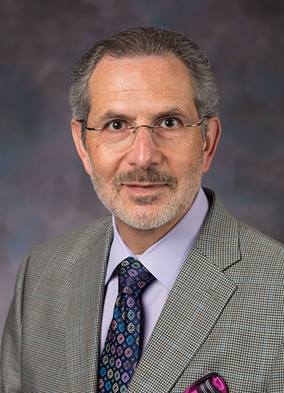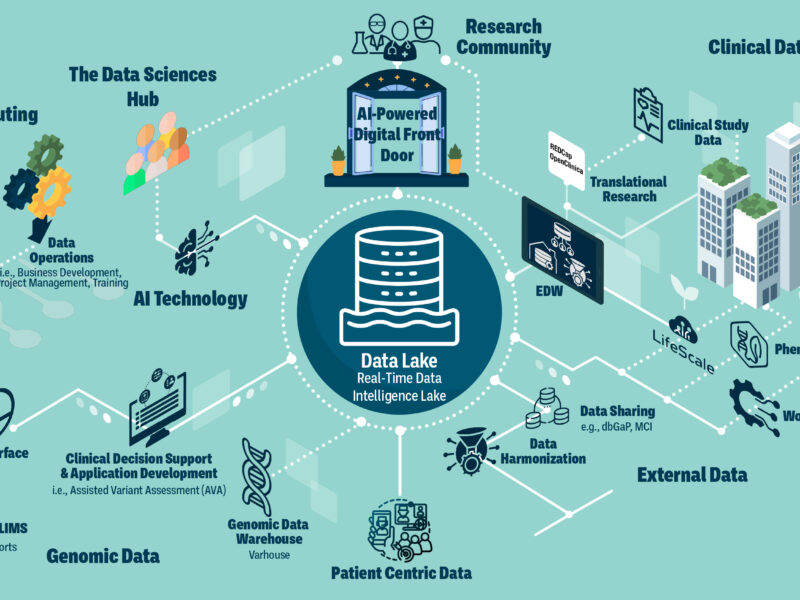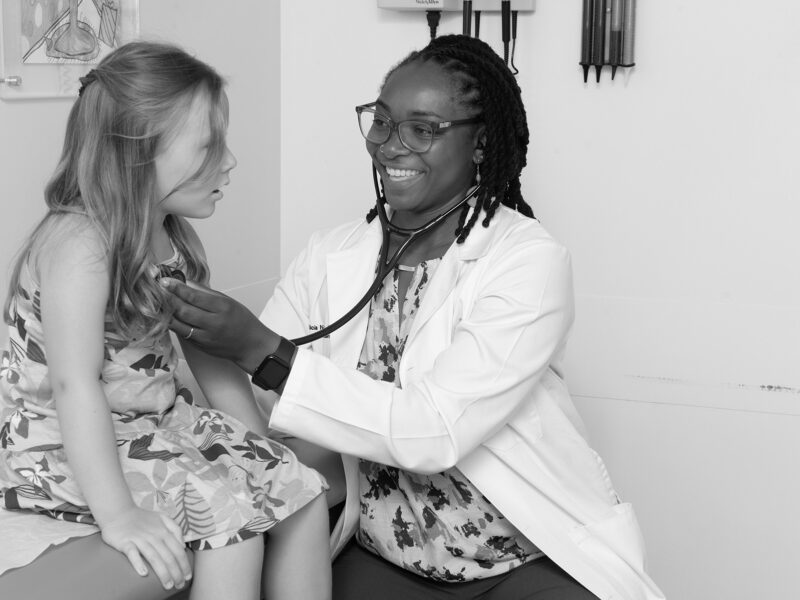Beyond the Basics: Enrolling Children in Research
Beyond the Basics: Enrolling Children in Research https://pediatricsnationwide.org/wp-content/themes/corpus/images/empty/thumbnail.jpg 150 150 Katie Brind'Amour, PhD, MS, CHES Katie Brind'Amour, PhD, MS, CHES https://pediatricsnationwide.org/wp-content/uploads/2021/03/Katie-B-portrait.gif- April 14, 2015
- Katie Brind'Amour, PhD, MS, CHES
The ethics of pediatric research include far more than the concepts of autonomy and assent.
Consent and assent. Competence and autonomy. Physicians are familiar with the catchphrases of ethical research, but the deeper researchers dig, the more they find that the field’s current understanding of the dimensions involved in pediatric investigations is still shallow.
Numerous studies have identified shortcomings in the communication of potential risks and benefits of research to pediatric and adult participants. In some studies, families of children with terminal conditions often hold out hope that phase I clinical trials — often designed solely to evaluate the safety of a potential therapy — may hold a cure. In other cases, patients may not completely understand how their tissue samples or genetic material may be used after the completion of a trial in which they initially enroll.
Despite the best efforts of informed consent documents and strict protocols for conveying the relevant information to families and patients, something is getting lost in the mix.

Regardless of where the patient falls with regard to the age of consent, all children should be engaged in the decision making process.
— Pedro Weisleder, MD, PhD
In addition, the degree and type of involvement participants and their families have in the consent process and the inclusion or exclusion of a child from discussions about his or her own research participation colors families’ perceptions and comprehension of the study and of research in general.
It’s time to take a better look at the context of child and family decisions to participate in research, experts say.
Talking to Families About Research
A family waits in their hospital room for the physician to return with materials about a clinical study. Could this be the answer they’ve been waiting for? A possible cure for the child’s terminal disease? A new reason to hope?
Cases like these — involving a child’s severe or chronic illness — make it easy for the concepts of therapy and research to get muddled, says Pedro Weisleder, MD, PhD, co-chair of the Integrated Ethics Committee and a practicing neurologist at Nationwide Children’s Hospital. When parents fail to comprehend or appreciate the distinction between clinical treatment and clinical research, a disconnect called “therapeutic misconception” occurs.
“There is a possibility that parents don’t separate or realize that when I invite them to participate in a trial, I’m wearing my clinical researcher hat, and when I’m providing care I’m wearing my clinician hat,” says Dr. Weisleder, who also is a professor of pediatrics at The Ohio State University College of Medicine. “While in theory those two should be clearly defined, that’s not always the case from the family’s perspective.”
As a clinician, Dr. Weisleder explains, his job is always to do whatever is in the best interest of his patient. But when doctors are involved in research, there is an unavoidable competing interest.
“As a clinician, I would never give a child with seizures a placebo drug,” Dr. Weisleder says. “But as a researcher, if the protocol of a trial includes a placebo arm, I may do so.”
This distinction in the clinician’s role might be more obvious to families if they didn’t come to the exact same place to participate in both care and research, Dr. Weisleder suggests. But without creating entirely separate facilities dedicated to research, the onus remains on the health care team to reiterate and emphasize the differences.
The idea of therapeutic misconception may also go hand in hand with a similar challenge to appropriate enrollment of pediatric patients in research: therapeutic misestimation.
“A parent may misestimate the potential benefit because they have a misconception of my role,” Dr. Weisleder explains. “When something like that happens, it is possible that parents may be willing to take higher risks for their children, thinking ‘Here is our child’s doctor who is suggesting that we enroll our child. The doctor will make sure he ends up on the treatment arm of the trial, so even though it’s a risky trial, I’m going to go ahead and sign my kid up.’”
This type of rationalization makes it difficult for clinical researchers to ensure the comprehension of parents and children. They may also be caught between conflicting goals: enrolling patients in important investigations or reiterating the limitations of a clinician’s ability to assure therapeutic benefit for the patient, potentially to the point of “frightening off” families from participating.
Building a Better Consent Process
Busy schedules and limited time with each patient may make it still more difficult to avoid misinterpretations about the potential risks and benefits of research.
Research ethics dictate that time should never be the factor that prevents adequate exploration of misconceptions and communication about participation. To address this risk, some institutions employ consent specialists who remove much of the burden of study explanations and consent processes from busy physicians. Other organizations send home the study materials with the families and allow them to review it on their own before having a follow-up discussion.
But because study materials are often lengthy and complex despite reading level requirements and explanation by a health professional, it is still the responsibility of the researcher to facilitate informed decision making on behalf of the patient and parents, says Victoria A. Miller, PhD, director of research in the Division of Adolescent Medicine at The Children’s Hospital of Philadelphia and an assistant professor at the Perelman School of Medicine at the University of Pennsylvania. Furthermore, it’s the role of clinician researchers to involve children — competent, autonomous or otherwise — in discussions about participation.
Dr. Miller’s research examines how physicians, children and parents interact during research enrollment decisions and the potential for discussions about participation to enhance children’s own decision making skills, self-efficacy and positive perceptions of the decision making process.
Positive experiences are about discussion and involvement, Dr. Miller says. Children included.
“Involving children in decision making, regardless of who has the ‘final say,’ shows respect for them as developing individuals and should be something we strive for in our work as researchers and clinicians,” Dr. Miller says. “I think it is important to communicate directly with children about research participation and to solicit their opinions and potential worries about the research.”
Dr. Weisleder agrees. “Regardless of where the patient falls with regard to the age of consent, all children should be engaged in the decision making process.”
Understanding how families discuss and comprehend the child’s involvement in research is another layer in the complex world of ethical pediatric research. When the child is a neonate or very young, the process is more parent-focused, Dr. Miller says. But when the child is approaching adolescence through young adulthood, another aspect of decision making enters the mix.
In medical research, the ages of assent and consent vary by local guidelines. In many cases, the legal age of consent is 18, although some states allow adolescents as young as 12 to 14 to consent to certain types of treatment and research (such as those related to sexual or mental health) without the involvement of a parent or guardian.
Requiring assent or consent from a child is supposed to be dictated by the child’s age, maturity and the type of research at hand. In some cases, as at Nationwide Children’s Hospital, institutional review boards may encourage documented consent from children as young as 8 years old.
This is because children as young as 8 or 10 years old with chronic diseases or significant interaction with the health care system may have greater capacity for comprehending medical scenarios than teens encountering the health system for the first time, Dr. Weisleder says. This variation by age in children’s competence complicates matters and necessitates an evaluation of consent and assent requirements for each research endeavor.
Dr. Miller is interested in more than just children’s competence, however.
“There has been a lot of focus in prior empirical work on whether or not children are competent to make research decisions on their own,” Dr. Miller says. “In my opinion, this approach does not take into account the family context of decision making or the fact that children often want and seek their parents’ guidance on decision making, especially for decisions related to their health.”
Even competent children may not want to act independently when it comes to decisions about participation in a research study. In fact, Dr. Miller’s research indicates children who may be considered competent and old enough to individually consent still often depend on their parents for advice, assistance weighing pros and cons and perspective on risks and benefits.
Allowing families to take time for give-and-take, open discussion and even disagreement is critical to avoiding ambivalence, confusion and mixed feelings, Dr. Miller says.
“Clinicians can promote shared decision making by encouraging parents and children to discuss research participation decisions in private prior to making a final decision,” she says. “We need to appreciate the family context of decision making — regardless of the child’s age or competency — and respect that parents have an important role in assessing the best interests of the child and providing support and guidance with respect to decision making.”
Another aspect of the family dynamic in medical decision making makes it difficult at times to determine children’s true desire to participate.
“Children have a tendency to want to please — especially individuals who are in a position of authority, such as their parents or their clinician,” Dr. Weisleder says. “We need to keep that in mind and perhaps investigate how we can prevent that from happening.”
Ethical Research in Practice
To improve practice, clinicians or those obtaining consent may need to shift their expectations for the consent process from a legal and medical information session to that of a true question-and-answer conversation, in which the health care professional attempts to draw out opinions, questions and concerns before assuming the parents and patient fully understand.
Bioethicists claim that it is the role of clinicians to hold themselves to more than the industry standards. What may appear to be going “above and beyond” the requirements of institutional review boards’ consent and assent regulations may actually be the most appropriate approach to engaging children in proper discussions about research participation.
And since most institutional assent and consent processes focus primarily on the provision of information and a signature on the dotted line, being more engaged than required may not be too difficult.
“I think we need to be careful about focusing too much attention on the child’s signature on the assent form,” Dr. Miller says. “Although the signature may be required from a regulatory perspective, it should not come at the expense of more meaningful ways of participating in decision making, like direct and age-appropriate discussion with any child old enough to carry on a conversation.”
Going beyond the basics of age of consent, communicating the risks and benefits, and obtaining a signature may be easier said than done. But the attempt to achieve true comprehension and involvement of all appropriate parties is essential, Drs. Miller and Weisleder say.
“Parents naturally want to do whatever is necessary to try to find a cure or solution for their child’s illness,” Dr. Weisleder says. “Patients and their families are vulnerable, so we need to make sure they have what they need to make an informed decision. That includes the information as well as the support of the clinician.”
While broadening the typical picture of pediatric research, Dr. Miller’s work shows that there is still much to be learned. Her future investigations will include examinations of the impact children’s stress level or health status has on their desire to participate in decision making. According to her recent publication describing the language physicians used in describing clinical trials, further work may also need to explore the way in which clinicians emphasize certain aspects of research participation when speaking with families.
These efforts add to the work of experts to understand the ideal amount of information to provide for informed decision making and how best to highlight alternatives to participation, including hospice care for terminal patients, should help transform the world of ethical pediatric research. And as a better understanding of patient and family participation in pediatric research emerges, clinicians’ approaches will likely be required to evolve to ensure the best possible experience.
“Doctors — whether they’re researchers or not — want to do what’s best for their patients,” Dr. Weisleder says. “The more we learn about ethical pediatric research and challenge ourselves to implement it on a regular basis, the better physicians will be able to provide that top-quality care.”
References:
- Lipstein EA, Brinkman WB, Fiks AG, Hendrix KS, Kryworuchko J, Miller VA, Prosser LA, Ungar WJ, Fox D. An emerging field of research: Challenges in pediatric decision making. Medical Decision Making. 2015 Apr, 35(3):403-408.
- Miller VA, Baker JN, Leek AC, Drotar D, Kodish E. Patient involvement in informed consent for pediatric phase I cancer research. Journal of Pediatric Hematology and Oncology. 2014 Nov, 36(8):635-640.
- Miller VA, Cousino M, Leek AC, Kodish E. Hope and persuasion by physicians during informed consent. Journal of Clinical Oncology. 2014 Oct 10, 32(29):3229-3235.
- Miller VA, Reynolds WW, Nelson RM. Parent-child roles in decision-making about medical research. Ethics & Behavior. 2008, 18(2-3):161-181.
- Weithorn LA, Campbell SB. The competency of children and adolescents to make informed treatment decisions. Child Development. 1982 Dec, 53(6):1589–98.
About the author
Katherine (Katie) Brind’Amour is a freelance medical and health science writer based in Pennsylvania. She has written about nearly every therapeutic area for patients, doctors and the general public. Dr. Brind’Amour specializes in health literacy and patient education. She completed her BS and MS degrees in Biology at Arizona State University and her PhD in Health Services Management and Policy at The Ohio State University. She is a Certified Health Education Specialist and is interested in health promotion via health programs and the communication of medical information.
-
Katie Brind'Amour, PhD, MS, CHEShttps://pediatricsnationwide.org/author/katie-brindamour-phd-ms-ches/April 27, 2014
-
Katie Brind'Amour, PhD, MS, CHEShttps://pediatricsnationwide.org/author/katie-brindamour-phd-ms-ches/April 27, 2014
-
Katie Brind'Amour, PhD, MS, CHEShttps://pediatricsnationwide.org/author/katie-brindamour-phd-ms-ches/April 27, 2014
-
Katie Brind'Amour, PhD, MS, CHEShttps://pediatricsnationwide.org/author/katie-brindamour-phd-ms-ches/April 28, 2014
- Post Tags:
- Health Policy and Management
- Research
- Posted In:
- Features







